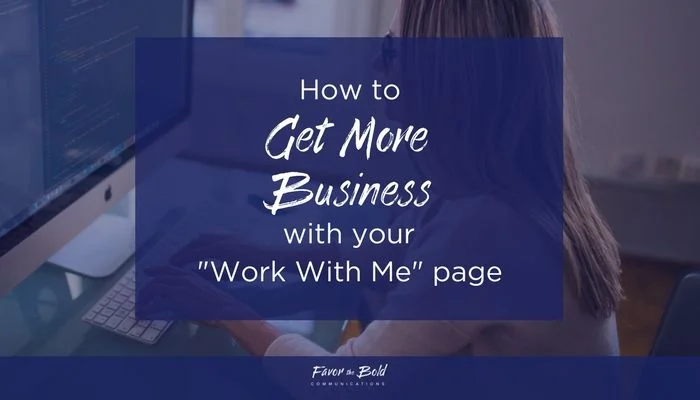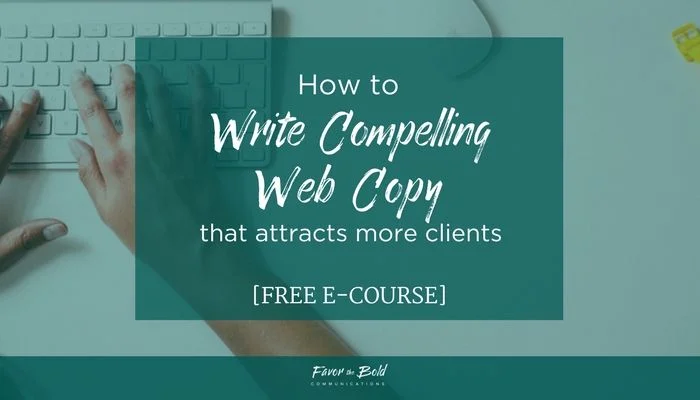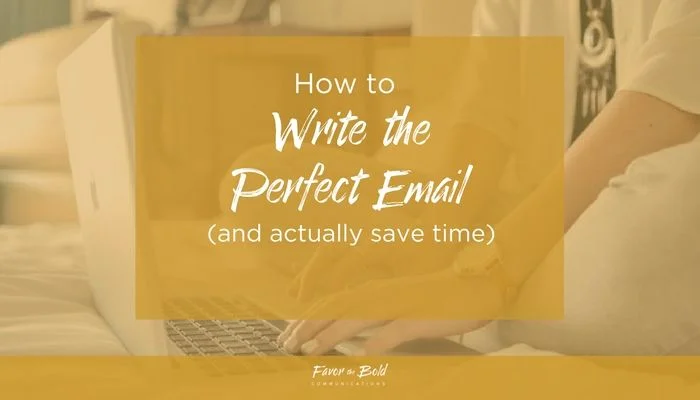Do you hate “content creation” as much as I do? Because I hate it. Honestly, it’s not even the act of creating content, it’s the term itself.
You see, I like to consider myself a writer. (I know, that in itself is questionable, but humor me for a minute, ok?) I don’t want to “create content,” I want to write. I want to pour myself into words that help other people. Calling that “content” to be “consumed” feels so... industrial. And yes, I know I sound like an old person.
So why am I writing a whole post on content creation? (Other than trying to appease the SEO gods...) Because it’s not about me.
Most creative entrepreneurs aren't quite so precious about being a “writer” and know they need to consistently create content to get noticed. So, the next time you sit down to create new content-- be it your web copy, video, a blog post, your elevator pitch, a social media post, ad copy, anything-- make sure you first answer these three questions.
1. Who are you talking to?
I know it’s obvious, but so many people can’t answer this critical question sufficiently. When asked, most of us give some vague answer, like, “women business-owners” or “travel bloggers.”
And that’s not good enough.
I’ve been guilty of this as well. Hell, I’m still trying to figure it out, and I’ve been making my clients answer this question for a decade!
But the fact is, if you want people to read (or watch, or listen to) your content, you need to know who it’s for. And to do that, you need to get specific.
How specific? I’ll answer that by being annoyingly literary and quoting one of my favorite writers, Kurt Vonnegut. Yes, I know this makes me look like a pompous writer a-hole and No, I don’t really care:
“Write to please just one person. If you open a window and make love to the world, so to speak, your story will get pneumonia.”
Your content is the story you’re telling. The more people you try to please with your creation, the more diluted it will become and the less useful it will be for the people who need it most. So get clear on who you’re talking to, and then commit to them.
2. What’s the goal of your content?
You’ve heard this before: start with the “why.” And that’s great advice, not just for content creation, but for life in general. I firmly believe we should all be asking ourselves "why" before doing pretty much anything.
But when it comes to content, let’s be clear about what “why” we’re talking about. Yes, you absolutely need to know why you’re creating something, but that’s not enough.
You need to know why your audience needs what you're creating.
Why would that one person you’re talking to click on your headline? What problem is she hoping to solve? What does she hope to get from your content? What will make her feel like she got value from what you created?
If you skip this step, you run the risk of creating something that no one really wants. You see this all the time: blog posts that read like a personal journal, videos that sound like an angry rant with no real value for the audience. Yes, your content should come from the heart, but it shouldn't be self-indulgent. Remember, it isn't about you-- it's about your audience.
So if you aren’t sure how to answer this question, don’t create anything. Go back to the drawing board and do some research to figure out what your audience wants.
3. What do you want your audience to do with your content?
Alright, you know who you’re talking to and you know why they’re consuming your content. Now you can be a little selfish: what do you want from this whole endeavor? In an ideal world, what would your target audience do with the information you’ve just given them?
This question strengthens your content in two ways. First, your goal for your reader will guide your content creation. When you first know what you want them to do with the information, it’s much easier to give them what they need to do so.
For example, after reading this post, I want you to ask yourself these 3 questions before you start any content creation project and use the answers to create more effective, engaging content.
Having that clear goal helped me name the post, format it as a list, keep the list short enough to be actionable, avoid going off on tangents about how to write better, and stay on track to provide an informational post, rather than an inspirational one. With a specific goal in mind, I’m less likely to waste your time (and mine!) giving you information you don’t need.
I’m also more likely to remember that goal at the end of the post and remind you of it with a call to action.
Because your audience is busy. They consume hours of online content every day and don’t remember the vast majority of what they read.
If you want to stick out in your audience's mind, you need to make it as easy as possible for them to get value from what you create.
Because that's what you're here for, right? To help people. To give them information and inspiration to make changes that will improve their lives in some way. As creative entrepreneurs, that's what we all want: to create something that will change someone's life.
So go do it. Stop reading this and go create something amazing.
But before you do, make sure you can answer those 3 questions. Your audience-- and your business-- will thank you for it.











![How to boost your brand offline-- and get more business [Part 3]](https://images.squarespace-cdn.com/content/v1/5671d7a82399a31f114f4c55/1477565172008-2K7456WNHWYM99T12HTV/How+to+boost+your+brand+offline--+and+get+more+business.jpg)